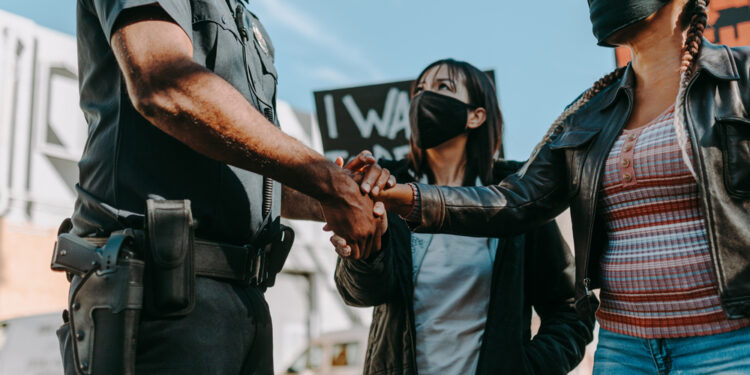According to a sweeping legislative initiative proposed on Friday, police officers in New York should only use physical force as a last resort, would have to meet a higher threshold for using lethal force, and would face new criminal sanctions if they violated those rules. The reforms, if implemented, could radically alter the nature of law enforcement in New York at a time when the topic of police accountability is at the core of a tense national debate about America’s criminal justice system’s persistent racism.
The bill was introduced by the state’s attorney general, Letitia James, who said in a statement that her intention was to establish “simple and valid guidelines for when the use of force is appropriate, as well as enacting real consequences for when an officer crosses that line. “The initiative, which came nearly a year after a white Minneapolis police officer, Derek Chauvin, killed a Black man, George Floyd, came amid calls for increased transparency for officers involved in such shootings.
Mr. Chauvin was found guilty of murder by a jury last month, but the verdict highlighted the rarity of such verdicts. Various states have revisited legislation that direct officers’ use of force in response to the widespread demonstrations that followed Mr. Floyd’s death, but these measures have yet to significantly alter the legal environment surrounding policing. Some experts questioned whether the introduction of vague new rules would make it more difficult to prosecute officers who used excessive force. MS. James’ initiative, which has the support of two Brooklyn Democrats in the State Legislature, Senator Kevin S. Parker and Assemblyman N. Nick Perry, would almost certainly be met with resistance from Republicans and, perhaps, some moderate Democrats in suburban districts.
The bill will change state law to require officers to use so-called de-escalation techniques, such as verbal reminders, before resorting to force, and to establish a “last resort” requirement for justifying such use of force. A similar provision does not exist in current law. MS. James, a Democrat, said at a news conference in Manhattan on Friday that police officers are imbued with an incredible amount of police and state authority. “The state has every right to demand the that power be exercised as infrequently as possible, and only when necessary and proportionately.”
The law was harshly criticized by Patrick J. Lynch, president of the Police Benevolent Association, which represents police officers in New York City. “This broad proposal would make determining whether or not we are allowed to use force in a given situation difficult for police officers,” he said in a statement. “The only rational approach is to prevent confrontations in which force can be required.”
“This broad proposal would make determining whether or not we are allowed to use force in a given situation difficult for police officers,” he said in a statement. “The only rational approach is to prevent confrontations in which force can be required.”












